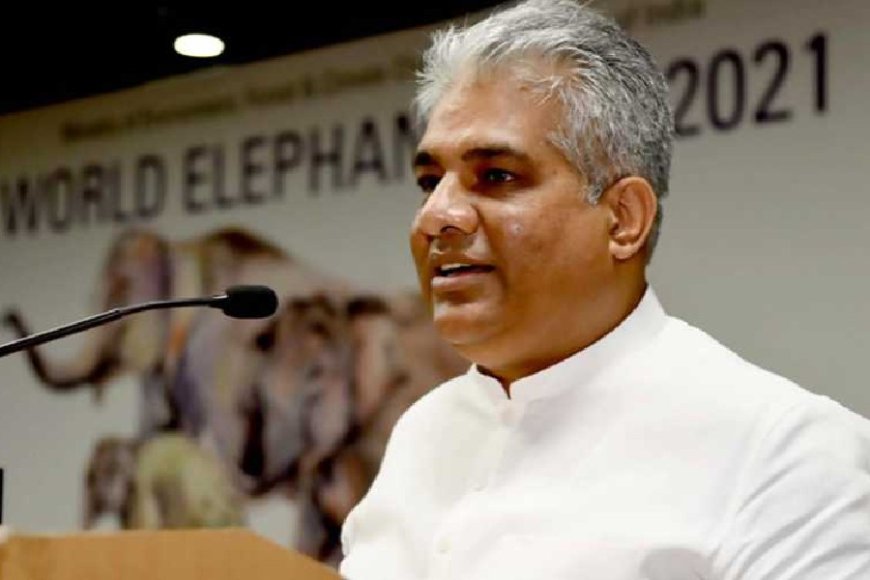Developed Nations Must Lead Climate Finance Efforts, Says Indian Environment Minister Bhupender Yadav
Union Environment Minister Calls for Equitable Financial Support for Developing Nations at India Climate Summit

Union Environment Minister Bhupender Yadav stated on Friday that developed nations that have historically been accountable for the highest levels of carbon emissions should take the lead and assume responsibility for financing underdeveloped nations to address the climate catastrophe.
The New Collective Quantified Goal (NCQG), which specifies the new amount developed nations must raise annually beginning in 2025 to support climate action in developing countries, will be the focal point of the UN climate conference in Baku, Azerbaijan.
"A global issue is rising temperatures. The average world temperature is rising as a result of rising carbon emissions, according to IPCC reports. The Nationally Determined Contributions of each country have been prepared. Whether it comes to cutting carbon emissions or utilizing renewable energy, India has met its climate goals," Yadav declared at the Times Network-hosted India Climate Summit.
"If we want equitable global prosperity, developed nations must give money and technological assistance to underdeveloped nations. Regretfully, this was not possible, but the New Collective Quantified Goal will serve as the focal point of the Baku COP29. He stated, "Countries that have historically been accountable for the highest carbon emissions ought to step forward.
The 2015 Paris Agreement's objectives, which include keeping global warming to well below 2 degrees Celsius and ideally 1.5 degrees Celsius over the average for the years 1850–1900, are to be met via national climate plans, or NDCs.
Climate scientists say that in order to keep global warming to 1.5 degrees Celsius, countries must act quickly to reduce heat-trapping greenhouse gas emissions by at least 43% by 2030 (compared to 2019 levels). This is because the Earth's surface temperature is currently 1.15 degrees Celsius higher than the average between 1850 and 1900.
Developing countries contend that if rich countries, who have historically been at blame for climate change, do not increase their financial support, it is unreasonable to expect them to cut CO2 emissions more quickly.
Rich nations are now expected to raise over $100 billion, while underdeveloped nations are calling for trillions of dollars to address climate change.































































